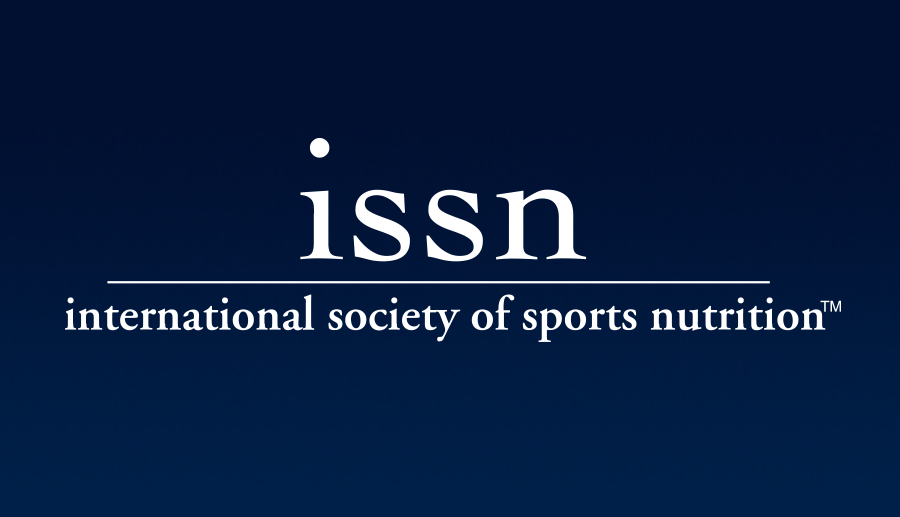
International Society of Sports Nutrition (ISSN) Publishes Position on Tactical Athlete Nutrition
The International Society of Sports Nutrition (ISSN) recently published a position stand for tactical athletes, providing an evidence-based summary of the energy and nutritional demands of tactical athletes to promote optimal health and performance[1]. Beta-alanine is one of the three ingredients with strong evidence to support efficacy and safety. A key nutritional guideline includes the importance of beta-alanine supplementation for military personnel. The summary notes that beta-alanine is the rate-limiting precursor to carnosine, a powerful physiological buffer that is also linked to focus, alertness, and cognitive function during a period of stress and fatigue. Beta-alanine is officially recommended by ISSN to be used to achieve health and performance benefits.
The ISSN previously published an in-depth review on beta-alanine, detailing its position on this popular sports nutrition supplement[2]. This objective analysis contained a critical overview of beta-alanine, its mechanisms and use. Seven conclusions emerged with regard to the safety, efficacy, benefits, and side effects of beta-alanine supplementation. The basis for ISSN’s stance is a comprehensive list of published findings through March 2015 for the relative effects of literature referencing the correlations of beta-alanine, supplementation, carnosine, and exercise.
How Beta-alanine Benefits the Body
Beta-alanine is a non-proteinogenic amino acid that is naturally produced in the body. Combined with histidine, it forms a dipeptide called carnosine. Over time, carnosine buffers the pH decline that causes the onset of muscle fatigue and failure, building endurance and speeding recovery. Carnosine synthesis and increased carnosine levels in the muscle are consistently attributed to beta-alanine consumption.
Beta-alanine is one of the most popular and professionally-commended supplements to enhance athletes’ capacity to exercise and train, build lean muscle mass, and improve physical function. Studies have shown that due to athletes’ higher baseline concentrations of muscle carnosine, their levels will increase at a lower rate than that of individuals who begin their dosing regimen with lower concentration in their muscle fibers. Vegetarians, for example, experience a higher rate of increase in carnosine levels through supplementation than those who consume meat. Although the rate of increase varies, beta-alanine supplementation universally increases carnosine concentrations in all populations.
Research supports the use of beta-alanine as an ergogenic aid. In studies conducted on tactical athletes during high-intensity conditions, beta-alanine supplementation improved focus, alertness, and cognitive functioning. One such study examined the physical and cognitive response of military personnel to a 6 g/day dosage for 4 weeks[3]. The elite combat unit completed a series of shooting tasks and cognitive assessments in a fatigued state after undergoing a series of demanding training exercises. Shooting accuracy, marksmanship, and engagement speed all improved after the period of beta-alanine supplementation. In another study, military-specific performance improved after 30 days of beta-alanine supplementation. The research observed improvements in cognitive performance during a 2-minute serial subtraction test at a shooting range under continuous fire[4].
ISSN’s Seven Conclusions on Beta-alanine Supplementation
In the positions cited by the ISSN, beta-alanine supplementation is noted as safe and effective. ISSN outlined seven conclusions on beta-alanine supplementation:
- A 4-6 g daily dose for 4 weeks increases muscle carnosine concentrations which serves as an intracellular pH buffer.
- When taken by otherwise healthy individuals at the recommended dosage, beta-alanine supplementation is shown to be safe.
- A tingling sensation known as paresthesia is the only unwanted side effect. It is lessened or eliminated when the single dose is lowered to 1.6 grams or a sustained release formulation like SR CarnoSyn® is administered.
- Exercise performance improves with supplementation, specifically open end-point tasks or timed trials of 1 to 4 minutes. These results are seen after supplementing daily with 4 to 6 g for at least 2 to 4 weeks.
- Beta-alanine supplementation delays the onset of fatigue and improves tactical performance.
- There could be benefits to combining beta-alanine with other single or multi-ingredient supplements. This is seen when formulations include a daily dose of 4 to 6 g for at least 4 weeks.
- Beyond muscle building, beta-alanine is increasingly known for improving the functioning of multiple systems in the body. However, more research needs to be conducted before definitively measuring the many other health benefits associated with increased carnosine levels.
The recent position for tactical athlete nutrition clearly updates point 7 listed above. The beta-alanine supplement is not only an ergogenic aid, but also supports focus, stress, and cognitive function and beyond.
Next Steps for Future Research on Beta-alanine Supplementation
Research studies continue to uncover the positive effects of beta-alanine supplementation. In these studies, increased carnosine levels are being shown to provide antioxidant properties, anti-aging benefits, and support for immunity and brain function. In fact, carnosine is not only found within the skeletal muscle, but also within the tissues of the brain, eyes, and heart. Initial findings reveal that increased levels of carnosine impacts the functioning of these systems through its anti-glycation action and chelation of heavy metals. According to the ISSN, future research should continue to examine beta-alanine’s potential ability to improve shooting performance and decision-making in tactical athletes and should explore the effects of beta-alanine supplementation on the carnosine concentrations in these various tissues. With these findings, more clarity will emerge on how beta-alanine supplementation works naturally within the body to provide multi-system support.
[1] Drew E. Gonzalez, Matthew J. McAllister, Hunter S. Waldman, Arny A. Ferrando, Jill Joyce, Nicholas D. Barringer, J. Jay Dawes, Adam J. Kieffer, Travis Harvey, Chad M. Kerksick, Jeffrey R. Stout, Tim N. Ziegenfuss, Annette Zapp, Jamie L. Tartar, Jeffery L. Heileson, Trisha A. VanDusseldorp, Douglas S. Kalman, Bill I. Campbell, Jose Antonio & Richard B. Kreider (2022) International society of sports nutrition position stand: tactical athlete nutrition, Journal of the International Society of Sports Nutrition, 19:1, 267-315, DOI: 10.1080/15502783.2022.2086017
[2] Eric T. Trexler, Abbie E. Smith-Ryan, Jeffrey R. Stout, Jay R. Hoffman, Colin D. Wilborn, Craig Sale, Richard B. Kreider, Ralf Jäger, Conrad P. Earnest, Laurent Bannock, Bill Campbell, Douglas Kalman, Tim N. Ziegenfuss & Jose Antonio (2015) International society of sports nutrition position stand: Beta-Alanine, Journal of the International Society of Sports Nutrition, 12:1, DOI: 10.1186/s12970-015-0090-y
[3]Jay R Hoffman, Geva Landau, Jeffrey R Stout, Matan Dabora, Daniel S Moran, Nurit Sharvit, Mattan W Hoffman, Yuval Ben Moshe, William P McCormack, Gil Hirschhorn & Ishay Ostfeld (2014) β-alanine supplementation improves tactical performance but not cognitive function in combat soldiers, Journal of the International Society of Sports Nutrition, 11:1, DOI: 10.1186/1550-2783-11-15
[4]Hoffman, J.R., Landau, G., Stout, J.R. et al. β-Alanine ingestion increases muscle carnosine content and combat specific performance in soldiers. Amino Acids 47, 627–636 (2015). https://doi.org/10.1007/s00726-014-1896-7









